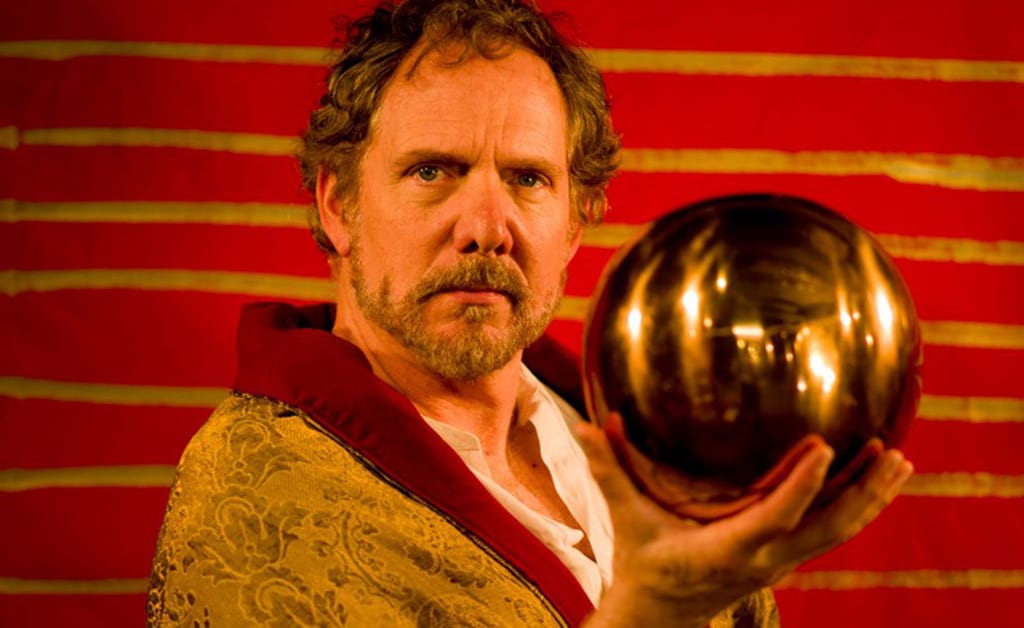Though set in the seventeenth century, Galileo feels unsettlingly relevant, just as Brecht would have wished. It’s the story of the pioneering astronomer who determined through observation and analysis that the Earth was not the center of all things. He uses his famous innovation, the telescope, to peer into the heavens and reach conclusions that were heretical. So it becomes the story of a human being devoted to facts and reason, fighting to be heard in a world of unreason. It questions those in power and their underlying preconceptions.
Throughout the play, Galileo is urged by those in the know to keep silent about his findings for his own sake and for the sake of his faithful daughter, Virginia. Still he appears tirelessly before secular and religious leaders, eventually having his case considered by the lead astronomer for the church who concludes that Galileo’s theory is correct. But church leaders feel that his findings conflict with doctrine, and that cannot stand.
DuBose is commanding and dynamic as Galileo, his voice carrying without ever feeling like he is yelling. He seems to age as Galileo does, his voice and gestures becoming weaker as the play goes on. By the end of the play, he seems both distraught with his failure to combat the church and claim the information he knew to be true, yet tentatively hopeful for the future as he has finally shared his final papers with a former student.
Lauren Ferebree enchants as Virginia. She is a dutiful daughter who loves her father, but who is devastated when Ludovico breaks their engagement. The scene in which she passes through the stage, silent tears streaming down her face, is absolutely haunting. The younger cast members in smaller roles were also impressive, holding their own and remaining truthful alongside some very seasoned leads.
Every aspect of this exceptional production works to envelop us in the experience, with no distinct line between audience and performance, implicating us in the moral/political choices and personal sacrifices Galileo faces. The round stage is in the center. Intimate groups of chairs surround it. Cast members enter from all directions and often speak as if addressing someone behind the audience, even looking into the audience from time to time. Period paintings around the outside, Latin alphabetical figures on the stage floor, and Italianate marble surfaces attach us lightly to Galileo’s time and place.
Brecht believed that theater should encourage critical reflection and action regarding social injustice. He first drafted Galileo in the Germany of 1938, an unreasoning world ruled through blind dogmatism. By the time he wrote the final (American) version of the play, he was also partly responding to the creation of the A-bomb. He saw that science, too, could become a dogma and wondered what would happen if it were pursued to its furthest end, without consideration for its consequences on humanity. You may just leave the performance questioning your own preconceptions and wondering if you will have the courage to stand up for truth should the time come.

